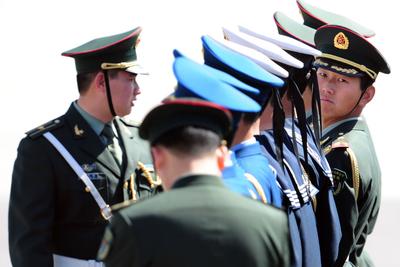Does this disparate group have the collective clout to influence outcomes in the global economy or is it all puff and no push?
There are many who subscribe to the puff rather than the push thesis. The BRICS appear more to be competitors in the global economy than capable of strategic cooperation, the puff argument runs. They might be collectively a bigger element in the world economy, but interaction between them — in trade or financial flows — is limited, with China dominating what there is and all the balance China’s way.
Sourabh Gupta, in this week’s lead essay has none of that. He sets out a powerful case for believing that the influence of BRICS on global outcomes is already clear and present. ‘The future is arriving sooner than anticipated,’ he says. ‘The present had arrived much earlier than is conventionally presumed.’
The long-term trajectory that foresaw the emergence of these new economic powers has elevated. Catapulted forward by their economic resilience during the Global Financial Crisis (GFC), the BRICS already have a more prominent place and role in the global system. The prediction, less than a decade ago, was that they’d account for under 10 per cent of global output at the end of the first decade of the 21st century. Already they hold twice that share. And now global consumption growth in the years ahead is predicated of their continuing and rapid growth, with the lacklustre outlook for most of the established industrial world.
The BRICS’ coming-of-age is typically dated to their inaugural, stand-alone leaders meeting in Yekaterinburg, Russia, in June 2009. But Gupta traces the rise of the BRICS phenomenon to September 2003, when, at a Doha Round meeting in Cancun, Mexico that year, Brazil, India, South Africa and a loosely-formed G20 agricultural group of developing economies chose to reject a skewed negotiating draft that the United States and the European Union had jointly sprung two weeks earlier and tried to foist on the WTO. A revised draft around which a workable multilateral consensus could be built was produced the following year, he says, in no small measure due to the creation of an inner Non-Group-5 (NG-5) in March 2004 comprising the US, the EU, Brazil and India, along with Australia.
This outcome at Cancun in 2003 provides a pointer, Gupta says, ‘both to the shared characteristics that bind the BRICS as well as the fundamental purposes that they seek to realize. Each BRICS country individually constitutes one among a selectively precious list of non-Western states, which, with variances, can afford the luxury of exercising genuine independent-mindedness within the international system. Yet collectively they nurse a common sense of impotency and marginalisation within many of the key institutions of global economic and financial governance. Hence their individual interest in accumulating voice and leverage on those multilateral issues that impinge on their development trajectories. Each possesses a degree of leverage that ranges from the modest to the negligible in its bilateral economic dealings with the west (as the Brazilian and Indian leaders once again discovered in their recent summit-level exchanges with Washington), yet collectively they possess the wherewithal to resist western economic impositions within multilateral settings. Hence their grouping format loosely akin to that of a credit union where individual worthiness is enhanced by membership of the group than would otherwise be the case if preferences were simply aggregated.’
It is true that each of the BRICS individually shares a competitive trade or resource relationship with the other, yet their divergences over the pressing issues of common international economic interest — trade, finance, development, climate change, global economic governance — is much narrower, typically, than those with the west. As Gupta says pithily, it is this ‘co-dependency that implicitly supplies the BRICS their mortar: that if they do not hang together, they will hang separately as defections are progressively engineered within their ranks by more powerful constituents within the multilateral system.’
A conception of the changing structure of global economic power that sees the BRICS as ‘a supple entente of rising powers, organised as a mutual support network that is committed to assist and backstop — sans recourse to litmus tests on intra-group cooperation — each other’s rise within the international economic order’ leads to somewhat different conclusions about the future of the global order from one that puts the contest of power between China alone and the US at its centre.
Peter Drysdale

